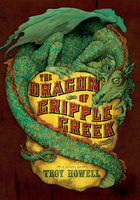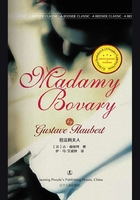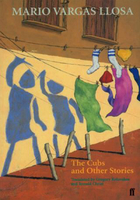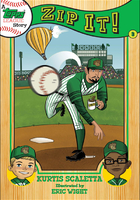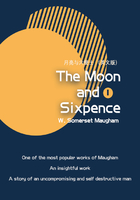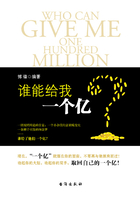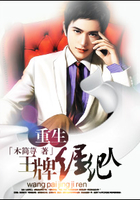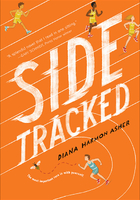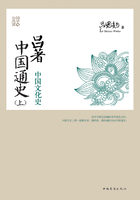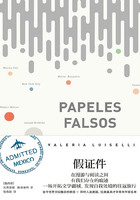Your dangers are many. I
Cannot look much but your form suffers
Some strange injury
And seems to die: so vapours
Ravel to clearness on the dawn sea.
SYLVIA PLATH, 'FULL FATHOM FIVE'
It is silly of me, a middle-aged woman, to call my dead father Daddy. It's not as if I were some giddy heiress anticipating the next instalment of my allowance or Little Orphan Annie learning to get what she wants out of Daddy Warbucks, or yet some southern belle refusing to be her age. My brother and sister called my father Reg, but they knew him better than I did and could permit themselves such familiarity. I always called him Daddy, and much mockery did I take from Mother for doing it. Daddy is a baby's palatal word; the word mother on the other hand is admirably adapted for saying through clenched teeth.
When it would have been appropriate for me to have called my father Daddy, I didn't have the chance. Just when he should have been dandling me on his knee while I searched through his pockets for surprises he went away. He wasn't there to see me turn from being a baby into Daddy's little girl. It was the war he left me for—I knew that much. There was no war in Melbourne. I saw no tanks, no planes, no marching, yet the war was more real to me than many things I had seen. I knew it was there, just out of sight, round a corner, behind the house fronts, ready to burst deafeningly out. I was taken to the movies once but I screamed in such terror at the cartoon that showed aeroplanes with teeth like sharks tearing at each other in the sky that Mother was forced to take me outside. Then I wept so unconsolably that I was never taken to a cinema again. I felt the war had engulfed the whole world, leaving us on a tiny promontory that would soon go under. Daddy was on the other side of the world somewhere trying to hold back the tide. I knew he could never come home on leave, and I wasn't angry or resentful, but I was worried as only children can be. I didn't dare to wish him home. Instead I wished with all my might for the war to end.
This is what I remember. Or rather, this is what I remembered until I found out the truth. Nobody told me any of this, you understand. I was told nothing. I made this all up myself when I was too young to remember that I had made it up. They call it confabulation, when people who are brain-damaged fill the vacancy in their minds with plausible matter, believable but unrelated to the truth. What is written above, dear reader, is such a confabulation. I do not remember the calamity that befell the little girl who made up this stuff; most victims of severe strokes do not remember the precise moment that they were struck down. I could be hypnotised into remembering every snapping strand in my four-year-old heart-break, but there is a limit. I am exhausted now. I can go no further. Some of the keloid must be left in place or my entire personality, gnarled and misshapen as it is, will collapse.
I should have listened when my good friend Jeffrey said, 'You mustn't face up to facts too much. Make little excuses for yourself, for your father.' Not I, I thought stoutly. Now that I see that life is too hard for most people, I regret my thoughtless cruelty. I have been a cow in a china shop, and the result is ruin.
In the last months of his life, when Daddy's anxiety threatened to overwhelm him, he would grow quiet if my little niece was set on his knee. He would sit quite still as she chirped and babbled and dribbled on him, as far as anyone could tell, happy. I like to think that he took her for the me he missed out on, his lost baby girl rescued from the maw of time, come to fill up the blank years that yawn between us.
Daddy did come home of course, But, during the years and years that we lived in the same small house, Daddy never once hugged me. If I put my arms around him he would grimace and pretend to shudder and put me from him. It was a joke, of course, a tiresome, hurtful, relentless, stupid joke. I told myself it was a ritual that Daddy needed to bridge some chasm of anxiety. I clung to the faith that he was not genuinely indifferent to me and did not really find me repulsive, although I never quite succeeded in banishing the fear of such a thing. When I was twelve I read Dombey and Son and cried myself blind every night for a week, but I cried for Florence Dombey and not for myself. I knew Daddy's strangeness was different, to be expected of a man who was forced to abandon a cuddlesome toddler and allowed to come back only when she had become a sharp-faced skinny little girl who scrutinised him intently with his own longsighted eyes. If he had let me under his guard, I should have crept into his heart and found the wound there.
Women are always ready to believe that men love them, despite all appearances to the contrary. I had no grounds for supposing that I was anything but deluded about my father's affection for me, until the last months of Daddy's life. My sister Jane telephoned and told me that he wanted to see me. The call was unexpected and it took me a little time to get my affairs in order and myself to Australia. When I arrived I found that Mother had turned Daddy out of his own house and committed him to a hostel, a shabby weatherboard house where derelicts of one sort or another could be fed and housed two or three to a room in return for their pension cheques, out of which the management would take its profit. When Jane and I arrived the proprietor opened the door in singlet and shorts, with a cigarette hanging out of his mouth. We found Daddy along with all the other inmates of the hostel, in the 'lounge-room'.
Daddy was sitting in a chair backed up against the wall. A huge television set boomed from a corner, but no one was watching it. They were all too busy cackling, raving, mouthing obscenities, scratching themselves or cursing. Over all hung a miasma of frying fat and the scent of tinned baked beans.
'Daddy!' I croaked. Jane wheeled and fled. In the musty depths of the house I heard a screen door bang as she raced outside and flung herself full-length under a lemon tree to bawl aloud. She didn't see Daddy get courteously to his feet and take my arm as if he had been expecting me all along. We walked out of the cacophony and into the room he had been assigned, which he shared with the occupational therapy equipment. He had with him no possessions whatever except some shabby clothing which seemed to have come from an opportunity shop somewhere. His chequebook lay on top of the nightstand. The last stub showed that he had paid $2,500 to my brother and the balance was nil. He had been stripped and dumped in that awful place for me to find. A smart move, and in every subtle and crazy detail the work of my mother.
Jane and I went into action immediately to see that Daddy was rescued from squalor and humiliation. The Returned Servicemen's League (of which Daddy was not a member) made a place available for him at once at RSL Park. I was given a form to fill in for him with details of his service 'overseas', a mere formality, but for me a challenge that made my heart knock. Ever since I could remember I had wondered what had happened to Daddy during those years he had been away but I had never dared to question him. He had never collected his medals, didn't go to reunions, didn't keep up with his old comrades, didn't spin yarns about his adventures. We children had always known that he was not to be badgered on the point. Now I was obliged to ask and he obliged to answer.
He answered quietly and simply, with a faintly abstracted air, until I came to the two years I thought he had spent in India. 'What about India?' I asked. He turned his eyes to me, those eyes which had been tired ever since I could remember; in them I could read something dreadful. His composure was completely gone. 'Not India,' he said in a voice that had risen to a wail, 'not active service, not India.' His mouth was working and the breath had come harsh into his throat. I threw down the papers and took him into my arms.
The RSL waived the formalities. Somewhere in the files there was an official diagnosis, 'Anxiety neurosis'. 'We've got more old soldiers suffer from anxiety than heart disease,' said Bruce Ruxton, Victorian president of the RSL. 'There's no need to distress the old man any more'.
I could have gone further. I could have kept on at him, taking advantage of his helplessness, to find out what I had always wanted to know. What did they do to him? Why was he in such anguish? What was the unnameable emotion I could see in his eyes? Panic? Shame? To grill him would have been to go against the habit of a lifetime. We children knew next to nothing at all about Daddy and we knew too that we had no right to find out. He knew that he could function adequately only within strict limits and he imposed those limits on us, by what seems to me now an extraordinary exercise of will. If we had breached those limits out of idle curiosity, Pandora's box would have opened and confusion engulfed us all.
In the months of Daddy's rapid journey towards death, the anxiety rose up towering in the gathering darkness of his brain, and terrorised him, but, although he roamed endlessly around the hospital at night, he bore his anguish stoically. The more he suffered, the gentler and more courteous he became. Jeffrey went to see him for me, and told me that the nurses adored him. I was jealous of them, for they gave him all the hugging and kissing he had never been able to accept from me. The whole family except me was with him on the day he died, but he waited patiently until they had gone to get something to eat and then, typically, quietly snuffed it.
Now that Daddy's need to have us not know is at an end, my need to know can be satisfied. The leads I have are few. I know that he was stationed in Malta and then sent to Deolali, nowadays Devlali, in India. British army slang for 'mad' is 'Doolally tap'. I don't know when I first started noticing that Daddy was continually sedated or when I learned to interpret the names on bottles of Tropinal and Triptophen that I found on his bedside table. There is one appalling memory which I cannot date. I am sitting on the carpet in front of the full-length mirror in my parents' bedroom. In the mirror I can see my father who is abjectly pleading with my mother, 'Don't do that to me, Peg. Please. Don't do it.' And his face breaks up the way it did when I had to interrogate him in the hostel thirty-five years later. His mouth twists and opens and terrible gasping sobs are torn out of him. That's all I can remember, but I remember it with appalling vividness. It is about my first memory and it was the worst thing I had ever seen or ever saw. I probably began to scream and got myself flung out of the room.
Generally Daddy was droll. He was even droll about his anxiety state. When we met for the first time after I had been 'overseas' myself for seventeen years, he conducted himself with great suavity and aplomb, resplendent in a cream tussore suit. He told me later on the telephone that when lunch was over and the tension released, and he was walking back over Princes Bridge to where he had parked the car, he suffered a mass reflex and purged upwards and downwards all over his pale silk. I was aghast, but he chuckled ruefully and made light of my consternation. When I asked when I could come to see him again, though, he begged to be excused. There was no alternative. My presence was a source of stress and he had to avoid stress as rigorously as an alcoholic has to avoid drink.
To outsiders everything must have appeared quite normal. Daddy inhabited and functioned quite normally in a world of casual bonhomie. To silence the echoes he packed his brain with sports trivia and floated it in a sea of beers at the Commercial Travellers' Association. He dressed elegantly, even slightly foppishly, in a masculine sort of way: pigskin gloves for driving but not quite furled umbrella. And hats. At the dinner-table where we children were forbidden to speak, he occasionally held forth, but every opinion he expressed could have been traced to the leader pages of the two conservative newspapers he read every day. If I pounced on some statement that seemed to me to reflect however dimly upon the real world, he would stab his finger towards my plate, signifying that I should eat up and shut up. 'I've forgotten more than you're ever likely to know,' he would say. This fatuous hyperbole dismayed me even more than his shuddering routine, but perhaps after all it was literally true. Daddy's whole life was an exercise in forgetting. He never referred to any kin, neither father nor mother nor sisters nor brothers nor aunts nor uncles, not even in a chance anecdote. He was a man without a past.
What we knew about him could be summed up in a few words. We knew, or thought we knew, that he was born in Durban in 1905 or so. And came to Launceston where he went to school. He had mentioned being a boy soprano, perhaps even a choir scholar. We thought his parents had gone back to England and died, but the Australian composer Peter Sculthorpe told me once that his grandfather in Launceston used to play draughts with an 'old Mr Greer'. It gave me a funny feeling to think that I had a grandfather just across Bass Strait who had no idea I existed. If I did, why would Daddy give us the impression that his family was lost without trace?
Somehow I gained the conviction that my paternal grandmother was named Rachel Weiss, but I'm afraid I probably made that up in my intense yearning to be Jewish. I wasn't deflected in my desire to make Daddy a Jew even by his own anti-Semitism, which I found only too easy to understand in a British Jew compelled to do business every day with central European Jews who could barely speak English and kept their working capital in paper bags under their beds. Besides, anti-Semitism was imposed on anyone who wanted to be reasonably popular in a society as chauvinistic as the one we lived in. For Daddy it was an occupational disease, and its symptoms were aggravated by the difficulty he had in dealing with the central European schmatte merchants, whose trading sechel and capacity for hard work left their Australian-born competitors gasping. Lots of sensitive children who came to the age of reason in the last years of the war and the first of the peace grew up longing to be Jewish, as the only way of escaping the collective guilt for what was done to the Jews.
As if there was any escaping the stain that lies across our world, for any of us. Like Tsvetayeva in 'The Poem of the End' we ask,
Isn't it more worthy to
become an eternal Jew?
Anyone not a reptile
suffers the same pogrom.
We war-time children are a strange generation. Our lives spin out of control in the wake of a sin that makes our first parents look no more vicious than puppies chewing up a slipper. Tsvetayeva killed herself; so did Sylvia Plath whose father was one of the 'men in black with a Meinkampf look and a love of the rack and the screw.' She too identified with the dead masks we saw piled in heaps in the open graves at Dachau and Belsen, and made of herself an honorary Jew.
A Jew to Dachau, Auschwitz, Belsen.
I began to talk like a Jew.
I think I may well be a Jew.
Sylvia Plath did not speak like a Jew, but like a well-educated lady from New England; I learned Yiddish and joined the Habimah players. I did not know if I had any Jewish blood or not, but I felt Jewish and I went out with Jewish boys. My father said once, when Peter Sapir came to take me to a dance, 'Taking the princess out? You take good care of her.' 'He must be Jewish,' said Peter. Oy weh.
Another muddled notion that we children somehow got was that Daddy had gone jackerooing after he left school and wanted to go on the land, but his rich father refused him the nominal sum required to secure a lease, so Daddy severed relations with him and sold advertising space instead. Somehow he got himself to Adelaide, where he knew the young Robert Helpmann. And then to Melbourne where he met and married my mother. Then I was born, the war broke out and Daddy went away.
I was five when my mother and I went by train to Spencer Street Station to bring Daddy home. I was sure I would recognise him from the photograph on the maple sideboard. This ikon showed a collection of distinguished features, dark hair brushed back from a high forehead, a relaxed smile, and an ironic glint in the eyes. I knew the exact proportion of the ears to the head, the precise bend in the narrow nose, the set of the long head on its square shoulders. We trailed up and down the platform peering into every face. The heavy skirts of the men's greatcoats kept knocking me off my feet. The kissing, hugging knots of people began to gather up their belongings and disperse; the platform was emptying and still we hadn't found Daddy. The war had lasted all my life and I had difficulty imagining how it could end. I began to drag my feet and day-dream, convinced that Daddy wasn't there. Mother grabbed my arm, nearly wrenching it from its socket as she became more agitated, turning and hurrying hither and yon. Suddenly she stopped and dropped my arm. An old man was standing sightlessly by a pylon. His neck stuck scrawnily out of the collar of his grey-blue greatcoat. His eyes were sunken, his skin grey and loose. I ran up to look at Mother's face. Surely she wasn't going to take this old man instead of Daddy. She was standing with her head cocked, peering like a wary bird in the jaunty hat that she wore on her forehead like a crest. If she was shocked she made no sign. She bundled the old man up and took him home and a year later my sister was born.
By then I had learned to match the old man's features with the photograph and to admit that this distant, speechless wreck was indeed my father. I would rather have had one of the handsome big Americans who used to hang around my mother. So would she, I shouldn't wonder, but she stuck to her commitment, with an ill grace, but faithfully.
This is what I remember. It may be all wrong, but it cannot be irrelevant. I used to think that truth was single and error legion, but I know now that none of us grasps more than a little splinter of the truth. The blind men all observed the elephant correctly; their mistake was to infer an entire object consistent with the patch that came under their hands. I may make the same error—indeed I don't see how I could avoid it—but I have no choice but to try to build up a picture of who my father might have been, if only because I have a lurking fear that a great wrong was done to him.
And, however silly it sounds, I'm going to call him Daddy.
I never called him Father because priests are called that. If Daddy hated anything as much as he hated carrots and dried fruit, it was priests. During the months of the siege of Malta, the only way of getting enough Vitamin C to ward off scurvy was to eat quantities of carrots and dried fruit. When the war was over, Daddy eschewed carrots and dried fruit forever. Malta had something to do with his passionate anti-clericalism too. On the rare occasions when he spoke of 'overseas' Daddy would tell us how poor and wretched the Maltese people were, while their priests were rubicund and fat. The people lived ten or twelve to a room, but the churches were vast, encrusted with gilding, crowded with painted plaster statues and miraculous gew-gaws. The priests were well-educated and worldly; the people illiterate, trusting and deeply religious. When Daddy went to India he must have realised that on the world scale of poverty the Maltese were very far from the bottom, but perhaps he thought if they could just get the priests off their backs they would be as rich as Australians. To my mind, having the British on their backs was a rather more serious problem for the Maltese, as it was getting their island bombed flat, but Daddy was not receptive to this heretical notion.
Daddy's loathing of priests went back further than Malta. When he was courting Mother, who was a Catholic, he had to take instruction in the faith. When the couple knocked on the door of the presbytery to ask the parish priest to do the honours, it was a suspiciously long time before the door opened to reveal the priest in his singlet and smelling strongly of liquor. Listening to Daddy tell it, and other stories of Maltese priests frequenting brothels, I despaired of Daddy's salvation. I thought there was some conspiracy in heaven to scandalise my father, so that he would never enter the true Church but die a heathen and go to hell. The priests I confessed myself to were chaste, unworldly and sober, but Daddy had never met any of them.
In fact Daddy's agnosticism was one of the few surviving indications of a native strength of mind. He used to tell a story of collapsing in the street with pleurisy and waking up in a Catholic hospital where they were busy administering to him the last rites. According to him, the fierce pleasure he took in throwing the priests and nuns with all their regalia and sacramental impedimenta out of his room saved his life. When everything else in his brain had dissolved, he clung fast to his disbelief, which wasn't easy seeing as everyone around him was a mick and praying hell-for-leather that he'd get the grace of final perseverance and be hauled to heaven.
Another reason for not calling Daddy Father was the existence of 'Father Gilhooley'. This imaginary personage was the principal of a reformatory, where the doors were perpetually open to receive us. Daddy invoked him whenever we showed some feeble sign of insubordination. He would demonstrate some of Father Gilhooley's disciplinary methods, including a nasty rabbit-killer chop to the nape of the neck, which caused electric tingles along your arms and legs that curdled in your fingers and toes. Daddy would imply darkly that he knew Father Gilhooley very well. The only religion he professed, which he called Calathumpianism, had been imparted to him by Father Gilhooley. Other children have bogeymen to frighten them and have the seeds of racism sown in them forever. We had an Irish Catholic priest lying in wait for us, which was odd for we were part Irish and wholly Catholic ourselves. Perhaps Father Gilhooley is a clue to who Daddy really was, a fossil trapped in some layer of his subconscious.
A clue to what? A clue to the man who courted my mother, to the half of my genetic inheritance, to a personality, a culture, a somebody I thought I could just glimpse from time to time. I never saw him read a book. His favourite music, indeed his only record, was Al Jolson's greatest hits. Sometimes he would intone a little verse:
Breathes there a man with soul so dead
Who never to himself has said,
This is my own, my native land…
And he would sing in the shower,
Hi think that Hi shall never seeng
Ha powem lervly as er treeng!
Or
Ho Sole Mio,
O gran divi dero
and so on with nonsense words, or
Ho for the weengs, for the weengs hof a derv…
two octaves below the key he would have sung it in as a boy soprano, and 'The Maori Farewell' with the word 'Tiddleypush' where 'goodbye' should be. Not too many clues there. There was an elaborate family word-play on the phrase 'Tosti partood' (the tood to rhyme with wood) which I realised many years later was an encoded memory of Tosti's 'Farewell'. And another silly set of phrases to do with 'bread dipped in bravery', an incantation of unknown significance to us, but perhaps it meant something to Daddy. He would never answer when you asked him what the time was, except to say, 'Must be, look how dark it is.' Every time.
A man I was in love with met my father once at the St Kilda Cricket Club. Daddy was showing around a cheque I had sent him in payment of a debt and telling everyone what a clever daughter he had, the more surprisingly to me, as he had never given me to understand that he thought of Ph.D.s as any but long-haired rat-bags. As he was describing the scene, my friend added an observation that surprised and hurt me, 'Your father's not very bright, is he?' I was mortified to think that the emptiness of my father's head was obvious on first acquaintance. In that case it ought to have been obvious to my mother when she met him, unless he had been different then. The only man successfully to woo my mother, whose wit, if utterly undisciplined and often perverse, is certainly sharp, must have been clever, original, amusing, or interesting at least. Daddy was older than Mother to be sure, but how had he grown so rapidly senile? (You will be wondering why I did not simply ask my mother. Suffice it to say that for Mother language is a weapon rather than a means of communication.)
As if it was not bad enough that outsiders could see my father as an agreeable dimwit, at home I had undeniable proof that he was feeble. When Mother's frustration boiled over and she lit into me with anything she could lay her hands on, Daddy would 'keep out of it', even though he was sitting reading the paper in the next room where the thud of blows was clearly audible. His response to Mother's goading was always the same, silence and distance. 'It takes two to quarrel,' he would say, apparently unaware that I could not go off to my club until the mad dog in the kitchen had stopped foaming at the mouth. I suppose he thought I could take it, and he was right, but I thought him weak and craven. Nevertheless I could not forgive my mother for calling him 'a senile old goat', as she often did.
That my father never once struck or reviled me was reason enough for me to love him, but I could not respect him. Not until the terrible months of his decline, when his suburban character armour fell away and I could dimly see the grand ruin which was his mind. Mother kept away from him, but he never ceased to ask for her. She treated him abominably, but he never uttered a disloyal word about her. He died in love with her, an achievement which she doubtless credits to herself. Only when he was dead did we begin to have some idea of the devastation that he had suffered.
He died of advanced athero-sclerosis of the brain. He had no cancer, no heart disease, no blood-pressure disorder. Only his mind was aged, prematurely turned to porridge. What if he had been a strong, intelligent, brave and energetic man before he was needed to fight a war? And sent home when they had done with him, old and broken before his time? Would that not explain my mother's furious frustration? What if he was deliberately broken, broken say by electro-convulsive therapy during those two years in Deolali? What if he spoke so little of the war and of his life before it because he simply couldn't remember it?
There are men who were treated for anxiety neurosis by electro-convulsive therapy, or deep narcosis, the sleep cure, who completely forgot the cataclysm that sent their synapses gibbering out of control. The treatments made them stop weeping and stammering, made them manageable, silent, obedient. Who cared if they stopped laughing as long as they stopped crying? A zombie, provided he is neatly dressed, punctual and punctilious, is a useful individual in our society. He pays his taxes, commutes every day, does meaningless monotonous work and does not complain. And if he no longer dances with his little daughter held high on his shoulder, or makes up nonsense games for her to play, or puts her to sleep when she is tearful and overtired, if he does not hear her nervous vomiting in the night because he is too drugged to wake, who will give a damn? The child like him is 'highly-strung'; the inherent defect runs in their genes. What runs in our genes, Daddy, is humanity, which will not survive except by extraordinary shifts in this inhuman world.
In this most Christian world
poets are all Jews
Daddy told me a story once about the war in which there was a decoding machine. He said he was a Secret and Confidential Publications Officer in Malta. The programme the British called Ultra, by which they exploited information arising from their knowledge of the German Enigma machine, remained a military secret for years after the war ended. What if Daddy broke down while he was privy to this most important secret and had to be debriefed by shock therapy? Brainwashed, in other words. By the allies. It seems a mad suspicion, but once it has been entertained I have no choice but to investigate it. What if his brain turned to slush as a long-term consequence of his drug therapy or shock treatment? What if his relationship with me was jettisoned because it was part of a period in his life that he was made to forget? The mere suspicion of an injustice so terrible is unbearable.
All the Australians who served overseas had a difficult war. They were assailed by culture shock, appalled by the poverty and inequality that they encountered for the first time, too far from home to touch base for years on end, a despised rabble among the fighting forces. Thousands of them came home to live out their lives as walking wounded, carrying out their masculine duties in a sort of dream, trying not to hear the children who asked, 'Mummy, why does that man have to sleep in your bed?' Australians don't whinge. There was no way these damaged men could explain their incapacity for normal emotional experience except by complaining and they would not complain. But their children must.
I don't know what I shall find on the other side of Daddy's curtain of silence. Perhaps he was after all a pompous ass, a dimwit or a coward. Perhaps he was a criminal, a traitor, a sexual deviant even. What I saw in his eyes that day in the hostel, the same spectre that looked at me out of the mirror in my parents' bedroom, struck me like a blow in the face. The most unbearable thought of all is that shame was planted in my father's heart and, all the time that he was heroically holding the fragments of his life together, he thought he was hiding from our censure.
It is a wise child that knows her own father. I knew as I held my father's old hand in my own, its exact replica, and watched my own skull emerging through his transparent skin, that I am my father's daughter. Now that he can be hurt no more, it is time to find out what that means.

